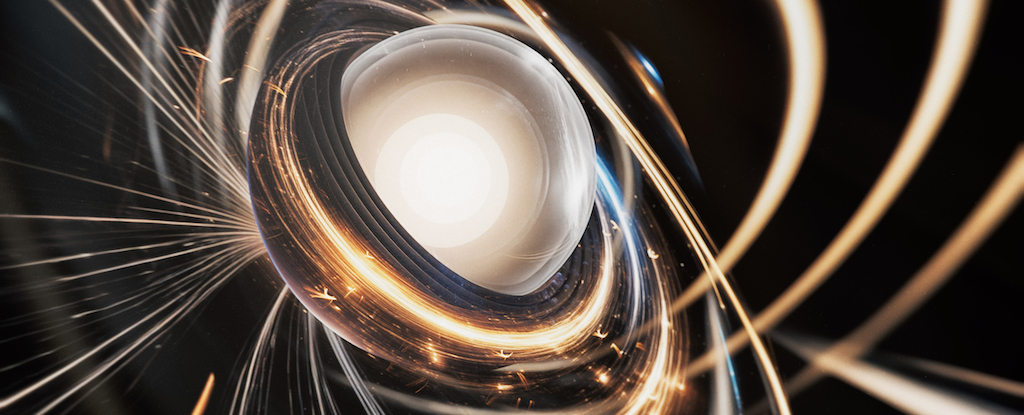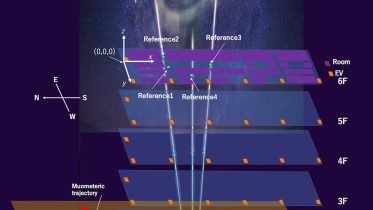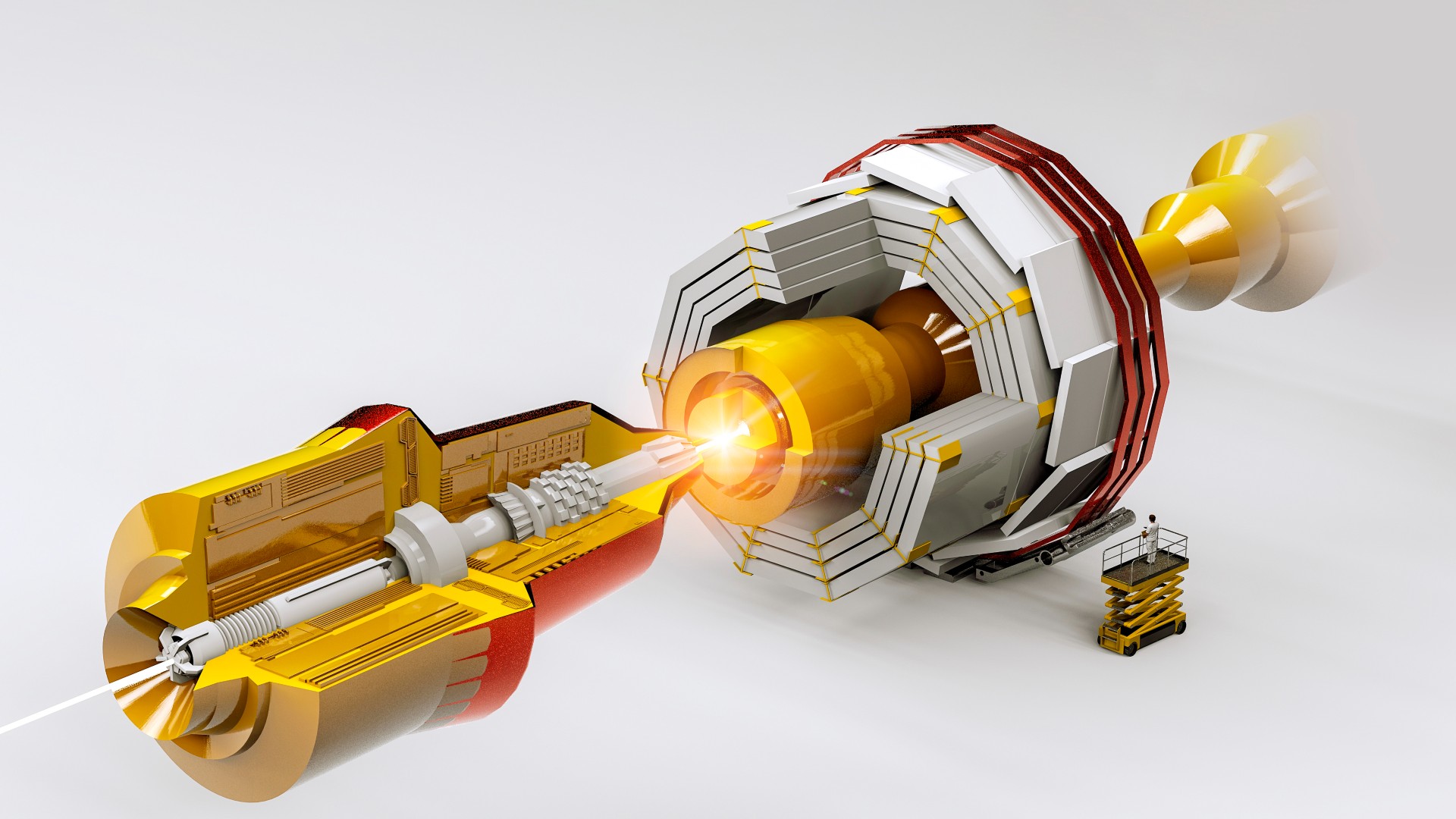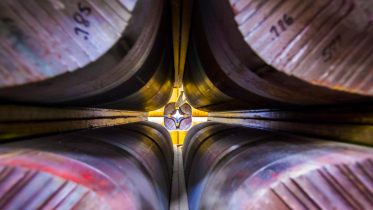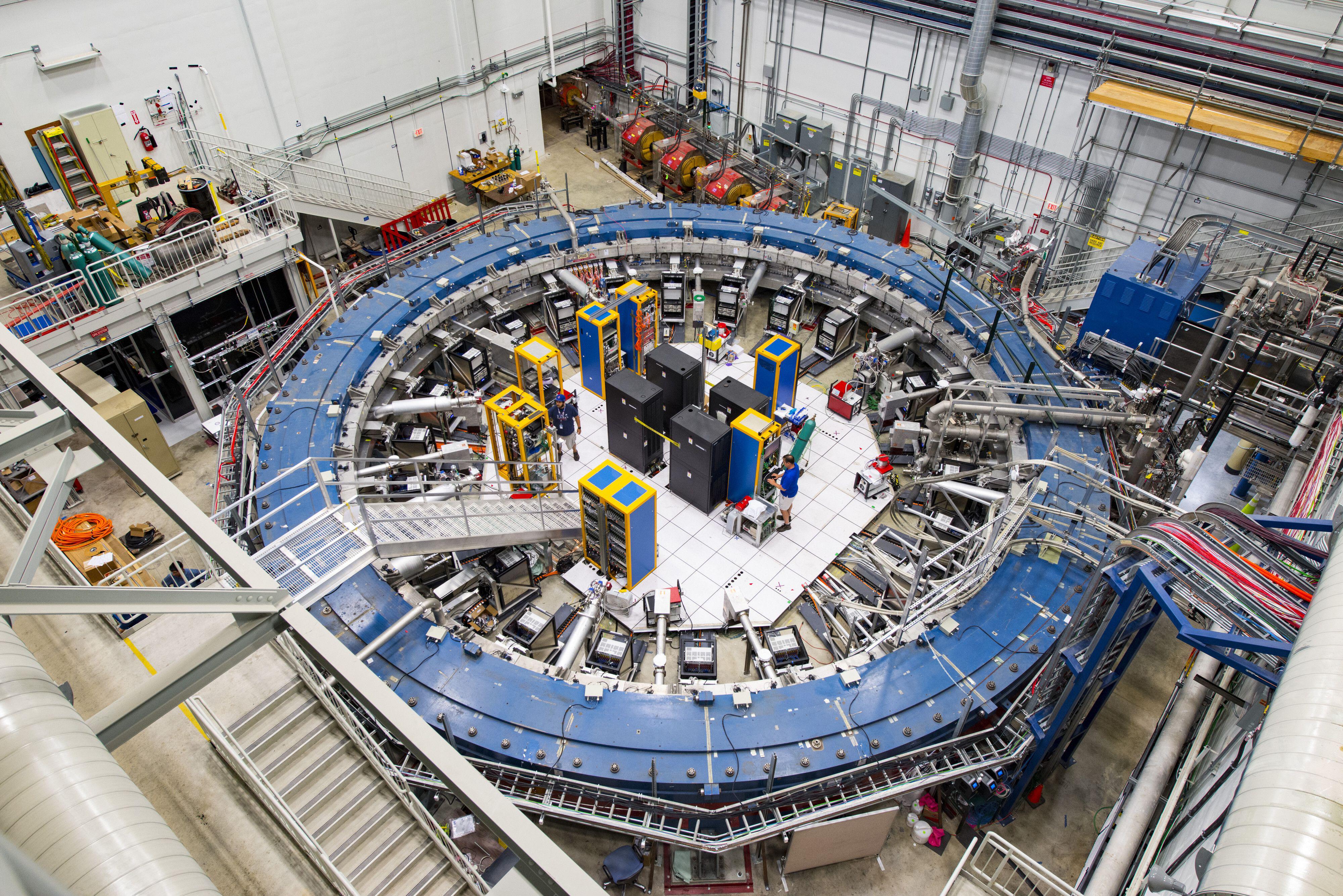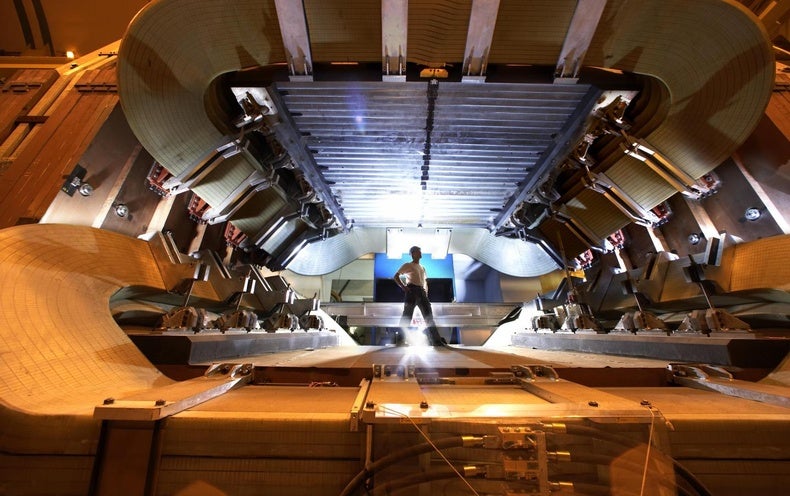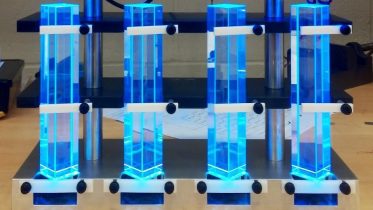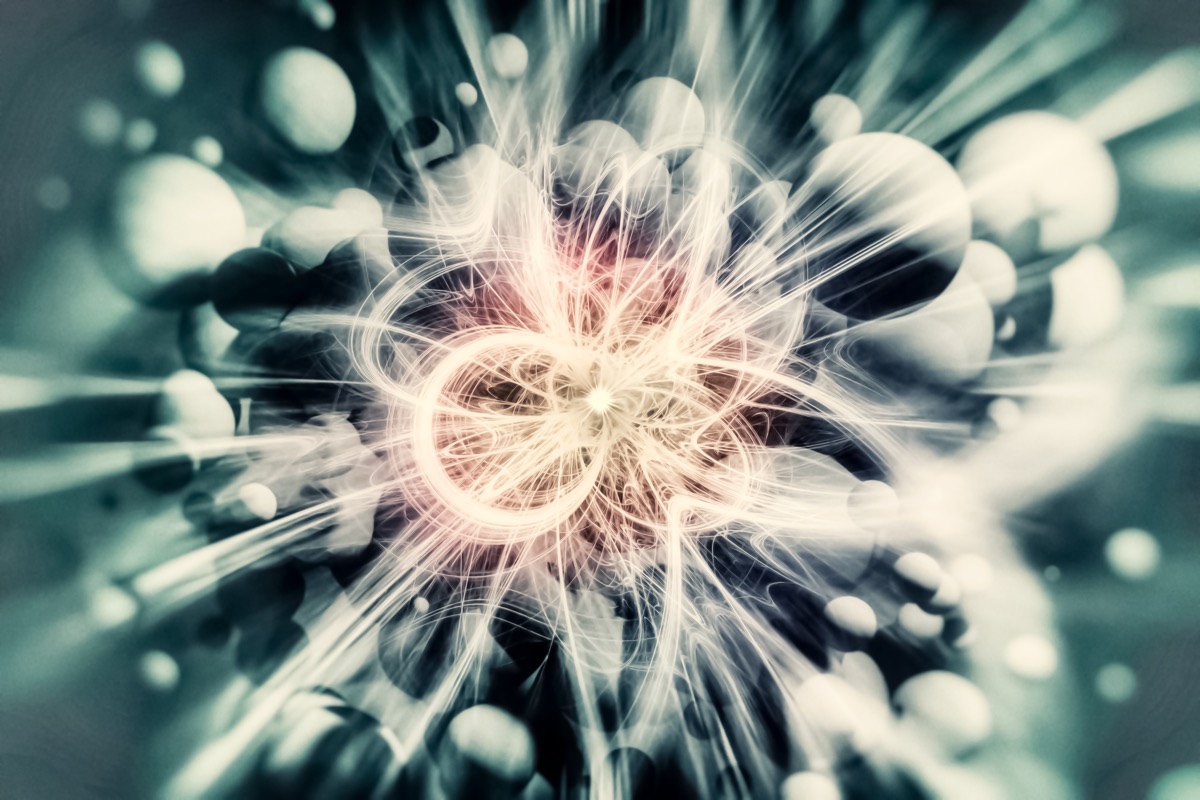
Muon
A muon is an elementary particle similar to the electron, with an electric charge of −1 e and a spin of 1⁄2, but with a much greater mass. It is classified as a lepton. As with other leptons, the muon is not thought to be composed of any simpler particles; that is, it is a fundamental particle. The muon is an unstable subatomic particle with a mean lifetime of 2.2 μs, much longer than many other subatomic particles. As with the decay of the non-elementary neutron, muon decay is slow because the decay is mediated only by the weak interaction, and because the mass difference between the muon and the set of its decay products is small, providing few kinetic degrees of freedom for decay. Muon decay almost always produces at least three particles, which must include an electron of the same charge as the muon and two types of neutrinos. Like all elementary particles, the muon has a corresponding antiparticle of opposite charge but equal mass and spin: the antimuon.
